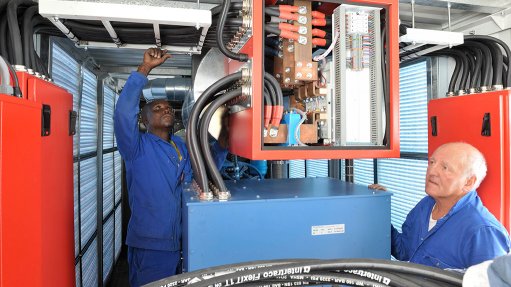
APPLICATIONS EXPERTISE All Zest WEG Group generator sets are manufactured in accordance with stringent quality control systems to ensure reliable performance
The most important consideration when buying a diesel generator set (genset) is to seek professional assistance from a genset supplier that will consider the entire electrical infrastructure, including the appropriate recommendation of the genset power rating, and not just the genset in isolation, says motors, controls, electrical products and solutions provider Zest WEG Group.
The company’s rotating machines manager, David Claassen, further points out that, because State-owned power utility Eskom encourages both private and industrial users to reduce their electricity consumption and lessen the strain on the national power grid, various issues related to standby power have arisen for the different sectors.
These include the need to determine the correct generator size, the requisite power rating and start-up capabilities for the various applications.
In light of this, Claassen believes that a key advantage of approaching Zest WEG Group for standby power is the company’s in-house knowledge, experience and applications expertise, in addition to its superior product range.
As customers frequently ask what size diesel generator will be adequate for different applications, he explains that the choice of size, or power rating, of a generator takes into consideration several factors, including the absorbed power – which is the power expected to be drawn by the load – the type of load and the duration for which this load is required to be powered.
“The first step in sizing a genset is establishing what load needs to be met during a power outage. A qualified team from a genset supplier, such as Zest WEG Group, should measure the type of load and the total power drawn before that supplier recommends a particular diesel genset. Following this, accurate load calculations can be provided and a suitable system recom- mended,” Claassen reiterates.
Another method for determining the power rating of a genset for commercial and industrial applications is to analyse the client’s utility bill, which will usually provide a breakdown of real power (kW) and reactive power (kVAR) consumed. From these values, it is possible to calculate the apparent power (kVA) consumed.
“Electric motors are used in almost all commercial and industrial facilities and analysing the starting methods of these motors is critical when determining the power rating of the genset,” says Claassen.
“Several factors and solutions are available and an innovative approach to each installation is necessary to optimise the capital cost and running expense of the installation,” he adds.